Extra Challenge Reading Fiction Worksheets for Ages 3-7
12 filtered results
-
From - To
Discover our "Extra Challenge Reading Fiction Worksheets for Ages 3-7" designed to enhance young minds through engaging stories and interactive activities. These worksheets provide an excellent opportunity for early learners to develop essential reading skills while exploring imaginative narratives. Each worksheet includes captivating questions and tasks tailored to various reading levels, fostering comprehension and encouraging critical thinking. Perfect for at-home practice or classroom enrichment, our resources ignite a love for reading and support foundational literacy. Download these fun and stimulating worksheets today to inspire your child's journey into the world of fiction and storytelling!
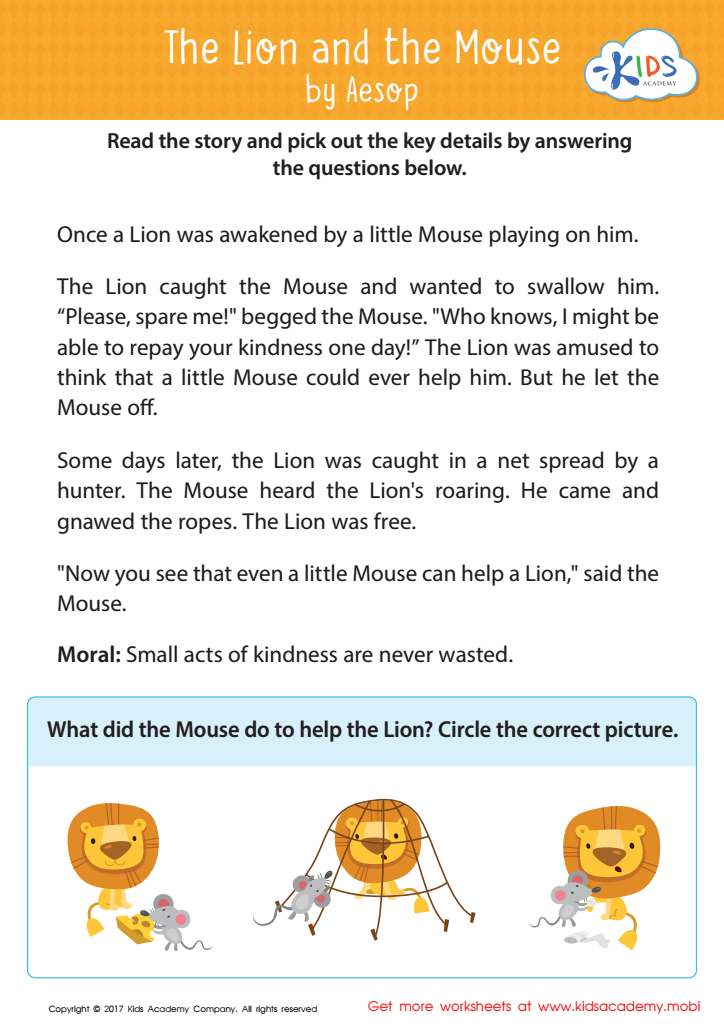

The Lion and The Mouse Sequencing Worksheet


Baa Baa Black Sheep Printable
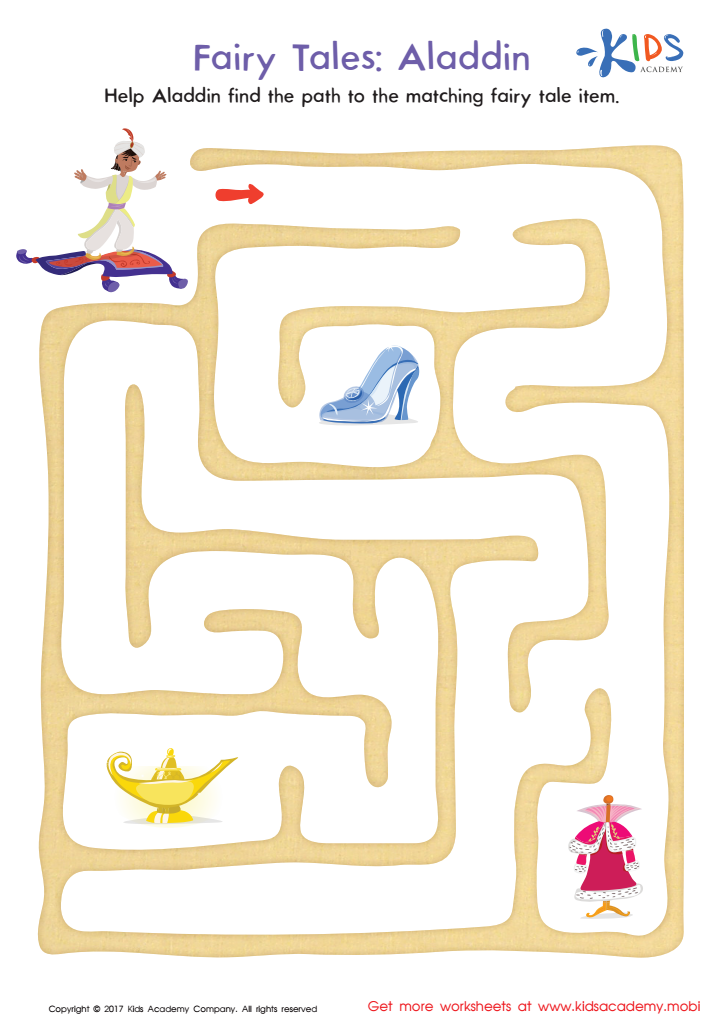

Fairy Tales Aladdin Printable
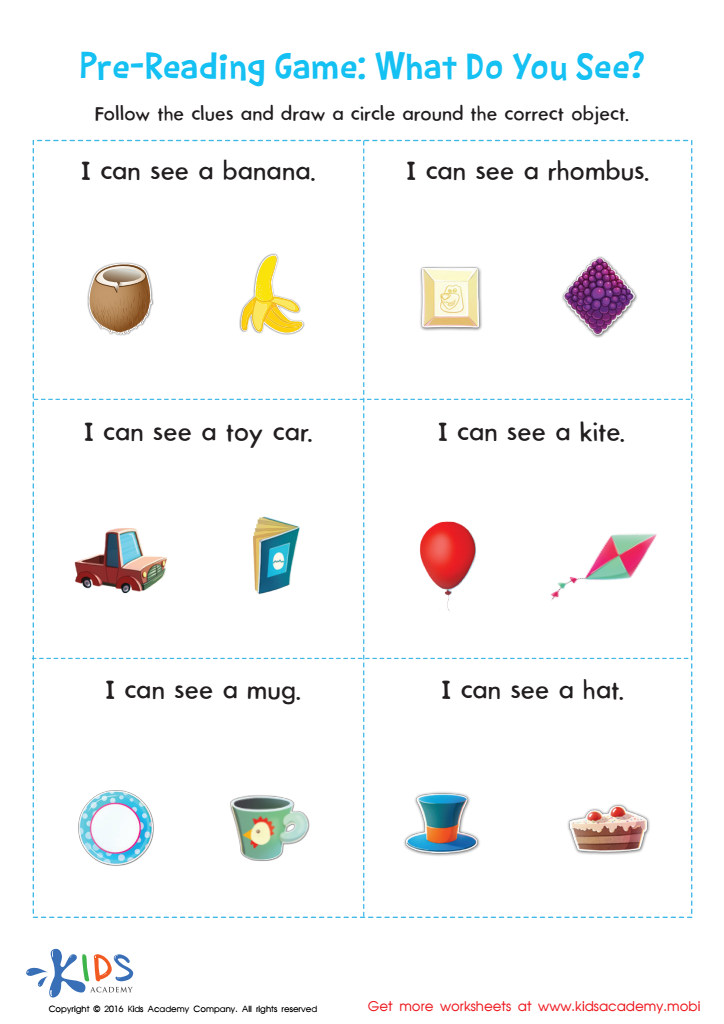

Pre–reading Worksheet: What Do You See?
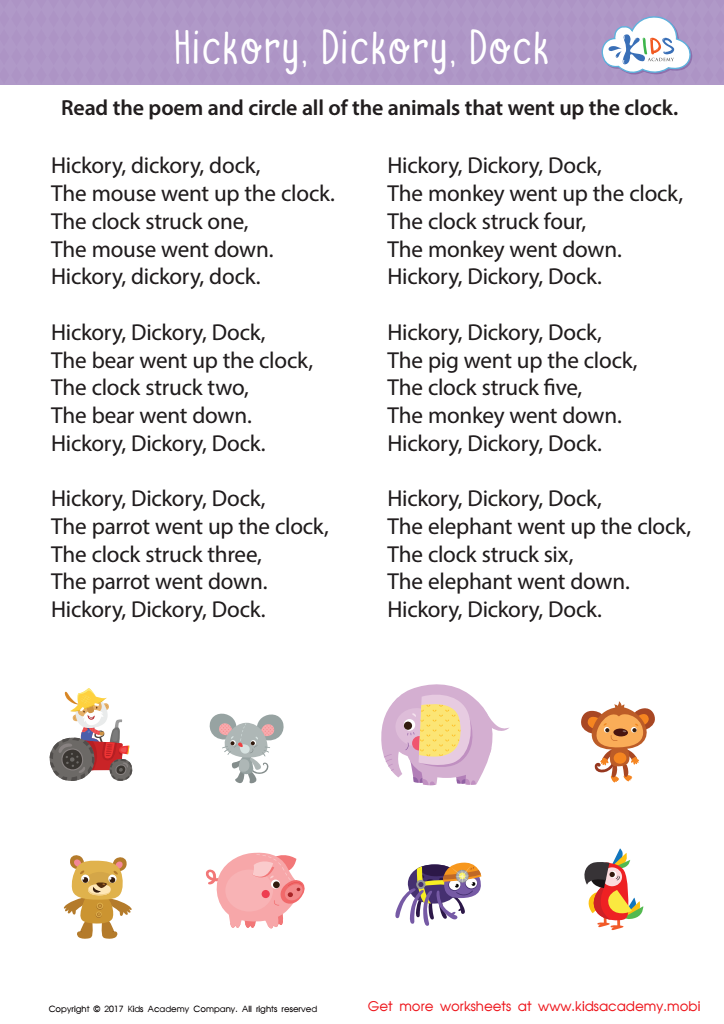

Hickory Dickory Dock Sequencing Worksheet
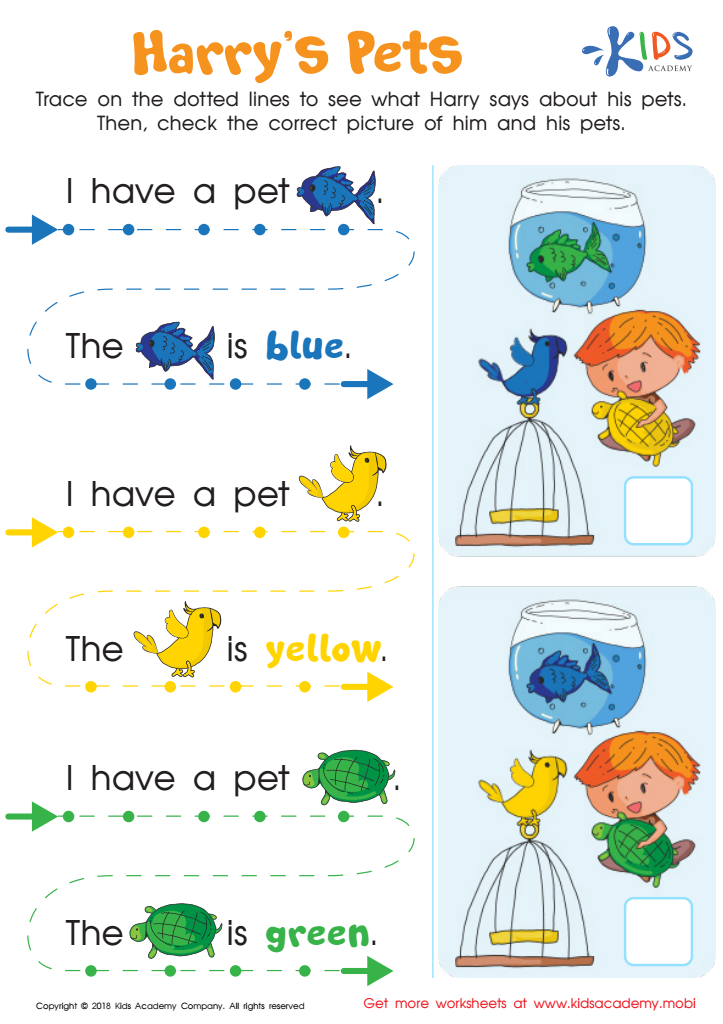

Read from Left to Right: Harry's Pets Worksheet
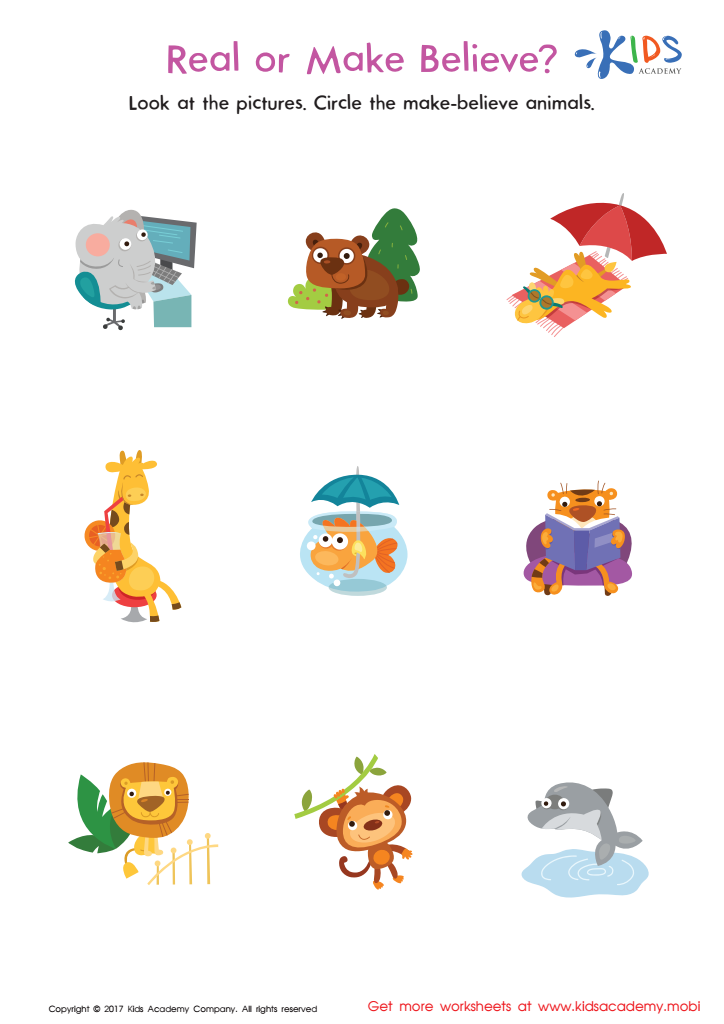

Fact or Make Believe Worksheet
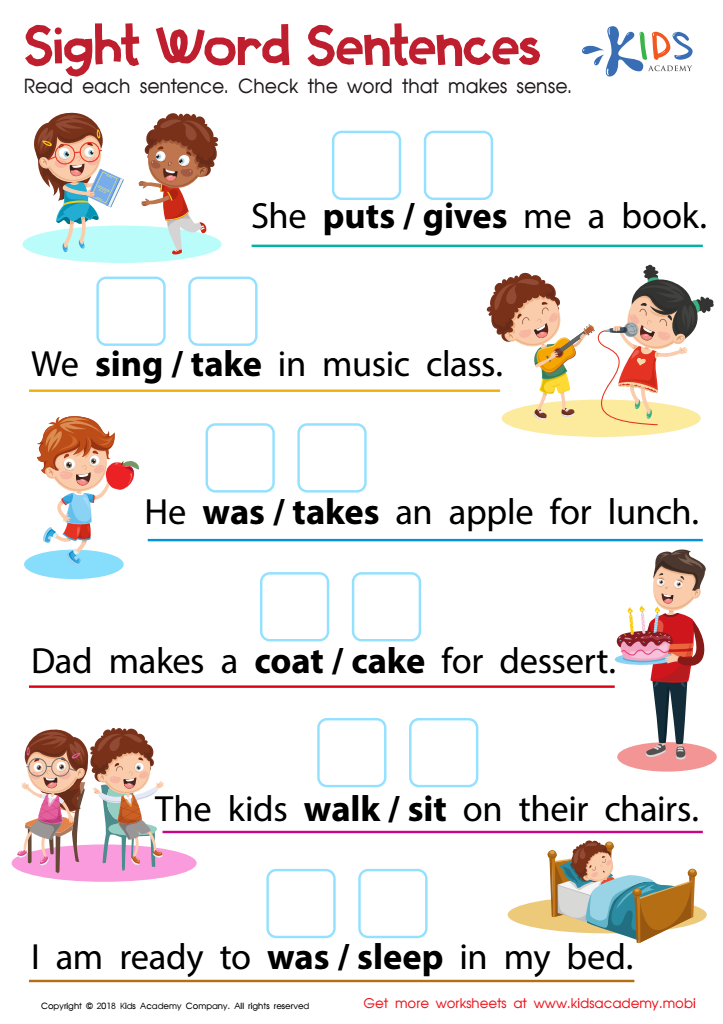

Sight Words Sentences Worksheet
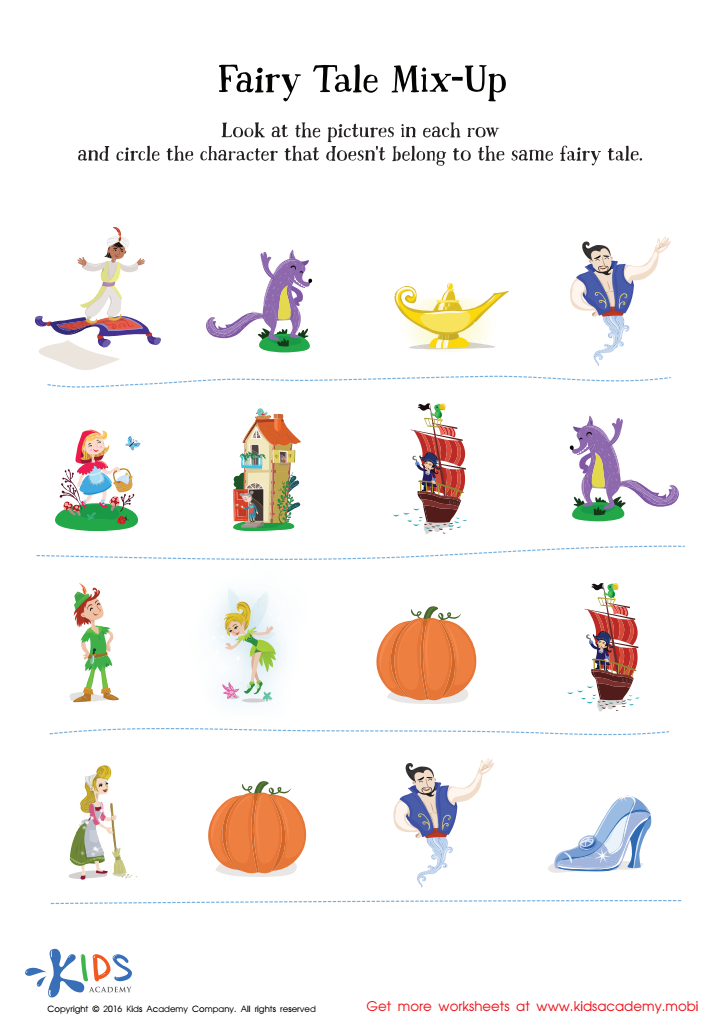

Fairy Tale Worksheet: Story Mix Up
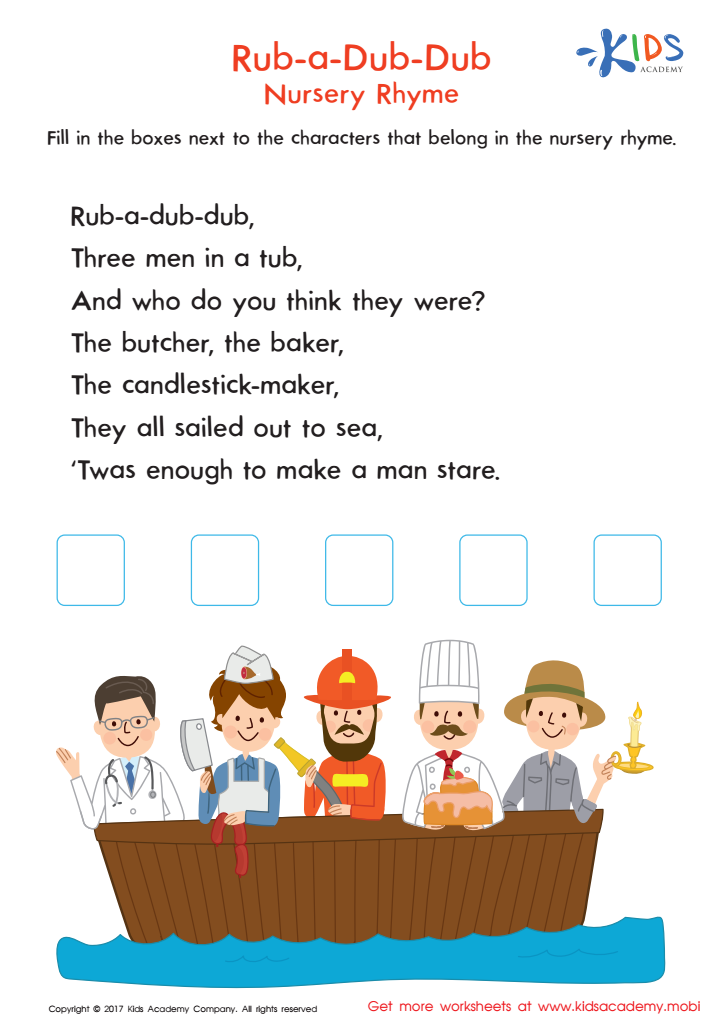

Rub a Dub Dub Printable
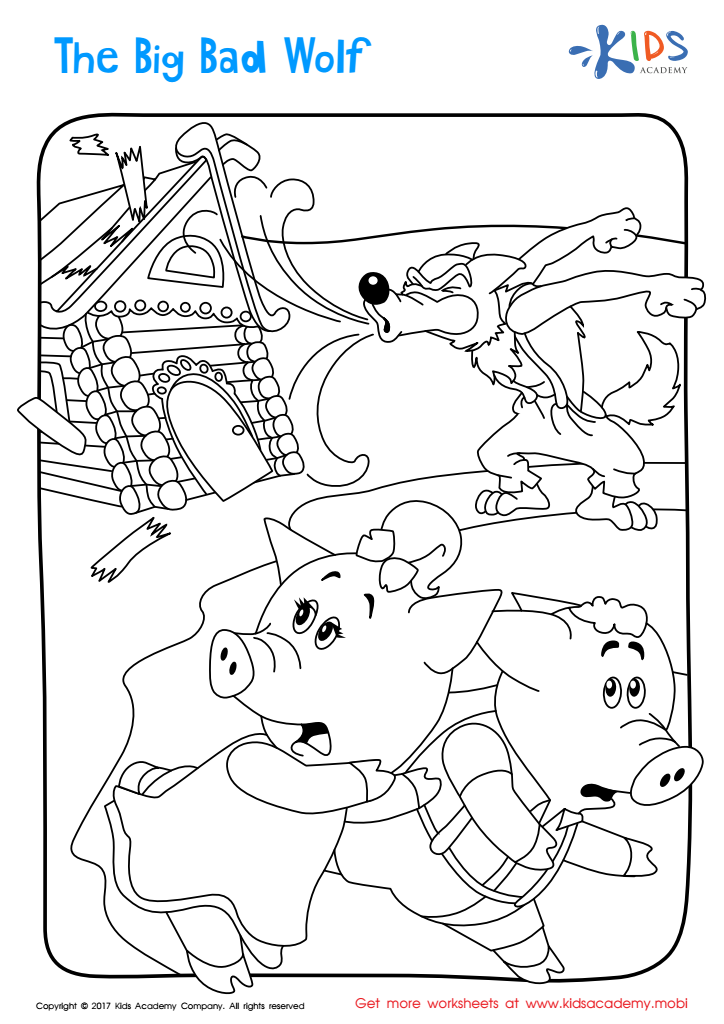

Big Bad Wolf Printable Coloring Page
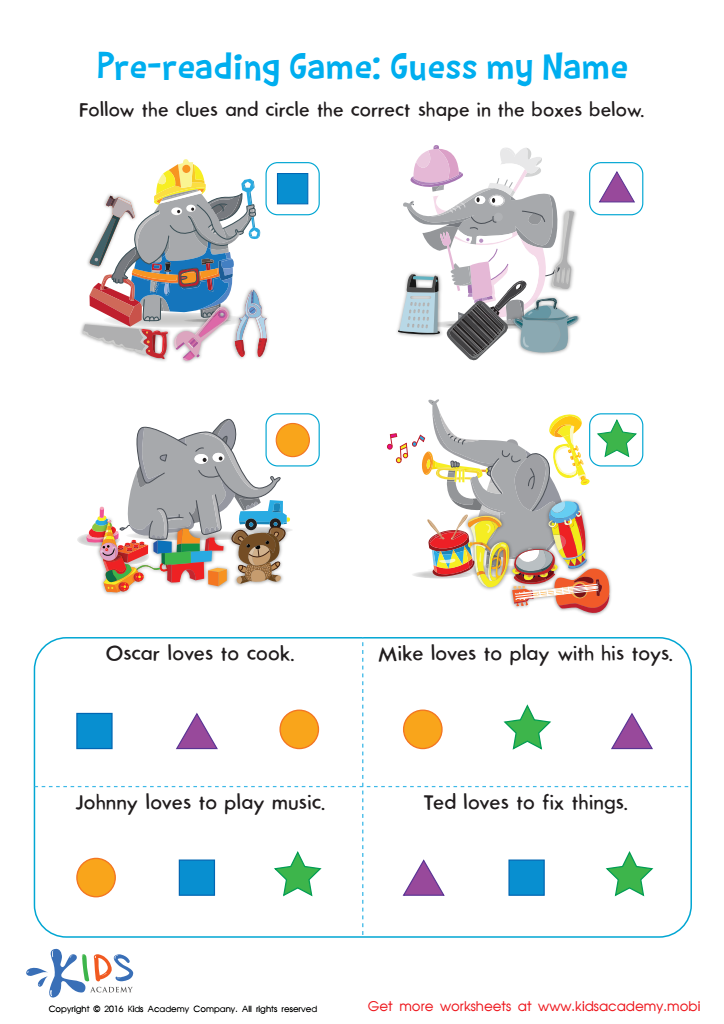

Pre Reading Worksheet Guess My Name
Extra Challenge Reading Fiction for Ages 3-7 is vital for developing early literacy and cognitive skills in young children. During this crucial stage of brain development, exposure to engaging stories fosters imagination and enhances vocabulary, enabling children to articulate their thoughts and feelings more effectively. Furthermore, literature introduces diverse concepts, cultures, and ideas, promoting empathy and social understanding.
For parents and teachers, encouraging reading through enriched fiction content can provide additional cognitive challenges that stimulate critical thinking and problem-solving skills. These stories often present complex narrative structures that can help children understand cause and effect, character motivations, and moral lessons, which are essential for their emotional growth.
Additionally, reading fiction can strengthen bonds. Shared reading experiences allow for conversation and discussion, creating opportunities for parents and teachers to connect with children on a deeper level. By participating in storyreading sessions, adults can guide interpretations and scaffold understanding, fostering a love for literature that can last a lifetime.
In essence, engaging with Extra Challenge Reading Fiction not only enhances literacy skills but also aids in holistic character development, making it a valuable practice that should be prioritized by both parents and educators.

 Assign to My Students
Assign to My Students








.jpg)










